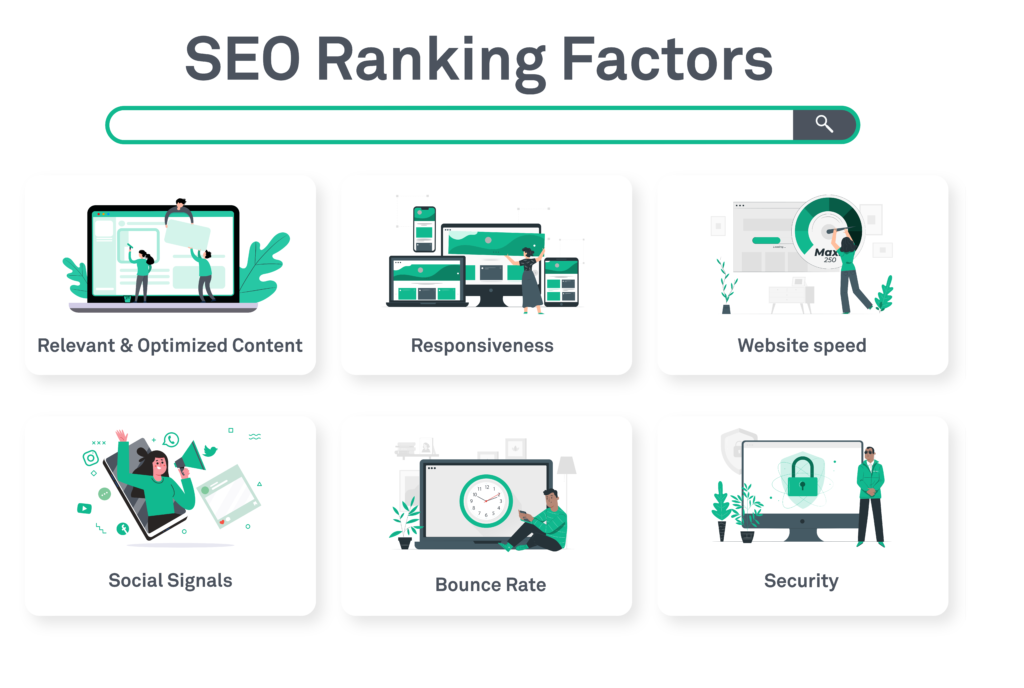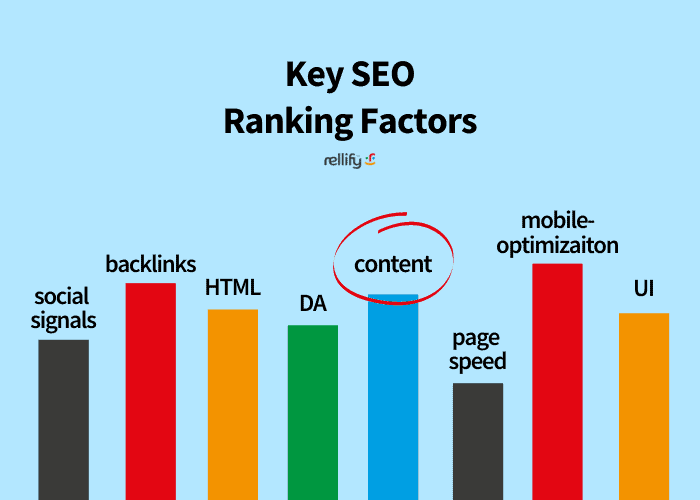
In today’s digital age, having a website is essential for any business or organization. However, simply having a website is not enough; it needs to be easily discoverable by your target audience. This is where search engine optimization (SEO) comes into play. SEO is the practice of optimizing your website in order to rank higher on search engine results pages (SERPs), making it more visible to potential visitors. In this article, we will explore some effective strategies and techniques that can help you improve your website’s ranking on search engines and drive organic traffic to your site. Whether you are a small business owner looking to increase online visibility or an experienced marketer seeking ways to enhance your SEO skills, the insights shared here will prove invaluable in reaching your goals.
Why SEO is important for website ranking

One of the most crucial aspects of ranking your website on search engines is utilizing SEO or Search Engine Optimization strategies effectively. SEO helps optimize your website to improve its visibility and credibility, making it more likely to appear higher in search engine results pages (SERPs). It involves various elements such as keyword research, on-page optimization, link building, and content quality.
Not only does SEO help increase organic traffic to your website, but it also enhances user experience by making your site more accessible and user-friendly. By focusing on relevant keywords and optimizing metadata tags, you can attract a targeted audience actively searching for similar products or services. Additionally, providing valuable content that satisfies users’ queries will encourage them to spend more time on your site and potentially convert into customers. Furthermore, implementing good SEO practices sends signals to search engines that your website is reputable and trustworthy. This leads to improved rankings over time as search algorithms recognize the relevance and value of your content. By constantly monitoring and adjusting your SEO strategy based on industry trends and algorithm updates, you can stay ahead of competitors in the digital landscape and ensure sustained visibility for your website among potential customers searching online.
Understanding search engine algorithms:

Understanding search engine algorithms is essential for any website owner or digital marketer looking to improve their online visibility through SEO. While the exact workings of these algorithms are highly complex and constantly evolving, there are a few key principles that can help us grasp their basic mechanics. First and foremost, search engines like Google aim to provide users with the most relevant and reliable information possible. To achieve this, they consider various factors such as keyword usage, content quality, user experience, backlinks, and more when determining a website’s ranking in search results.
One important concept to understand is that search engines use spiders or crawlers to gather data about websites across the internet. These spiders analyze not only the visible content but also examine HTML tags, metadata, anchor text, and other elements to determine which keywords and topics a particular page should rank for. Additionally, search engines make use of complex mathematical formulas called algorithms that weigh these different factors in order to generate relevant search results.
Identifying key ranking factors

When it comes to ranking your website on search engines, understanding the key ranking factors is crucial. While there are hundreds of factors that search engines like Google consider when determining page rank, it’s important to focus on the ones that have the greatest impact. One of the most influential ranking factors is the relevance and quality of your website’s content. Search engines prioritize websites that provide valuable and informative content to their users, so make sure you optimize your pages with high-quality, relevant keywords.
Another significant ranking factor is user experience (UX). Search engines want to direct their users to websites that are easy to navigate, accessible across different devices, and provide a positive user experience overall. Factors such as page loading speed, mobile-friendliness, intuitive site structure, and engaging visuals all contribute to a better UX and can help improve your rankings.
Conclusion:
In conclusion, implementing SEO techniques to rank your website on search engines is crucial in today’s digital age. By optimizing your website’s content, meta tags, and backlinks, you can increase its visibility and attract more organic traffic. However, it’s important to note that SEO is not a one-time effort but rather an ongoing process that requires continuous monitoring and updates. Whether you’re a seasoned entrepreneur or just starting out in the world of business website development, buckle up and get ready to take your digital presence to new heights.
Furthermore, staying up-to-date with the latest trends and algorithm changes is essential for maintaining a high-ranking position. As search engines continue to evolve, businesses must adapt their strategies accordingly. Utilizing tools such as Google Analytics can provide valuable insights into user behavior and help refine your SEO tactics.
Ultimately, investing time and resources into effective SEO practices can yield significant results for your website’s rankings on search engines. By following these guidelines and continuously improving your strategies based on data-driven insights, you can position yourself ahead of the competition and reach a wider audience online.
ALSO READ: Unveiling The Hidden Secrets Of On-Page Optimization For SEO Success





